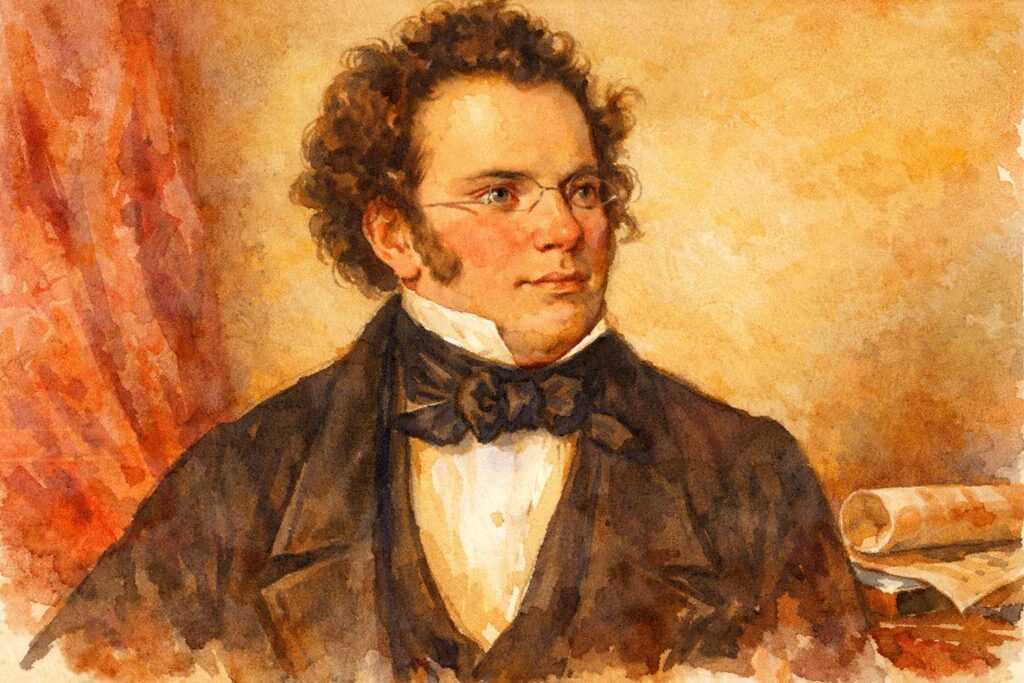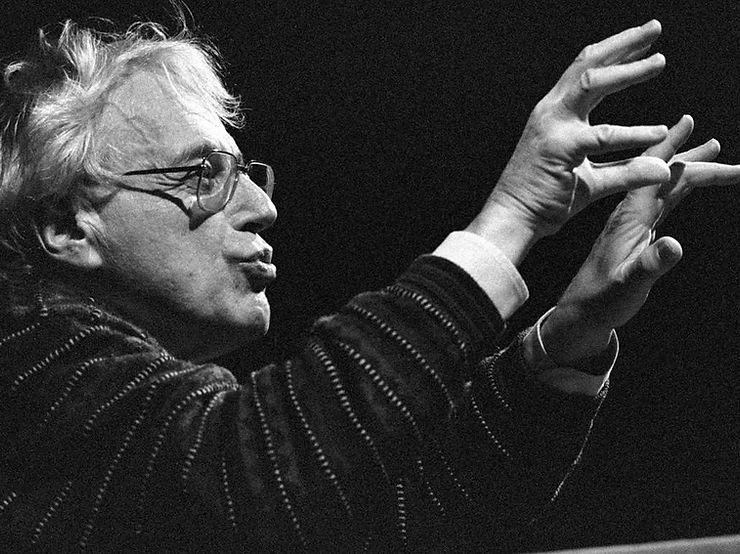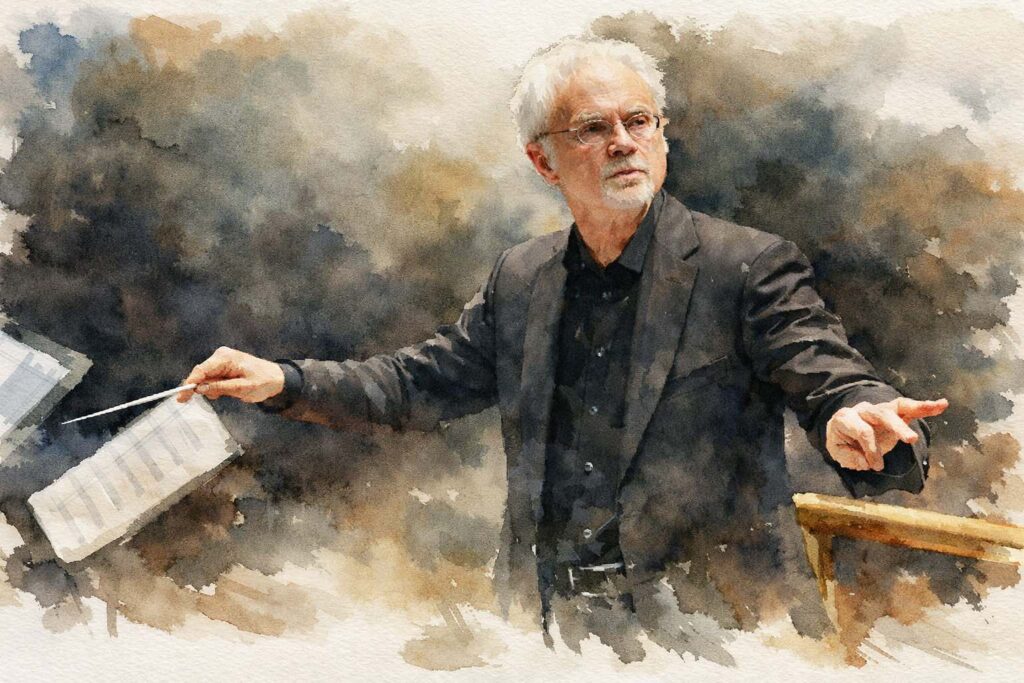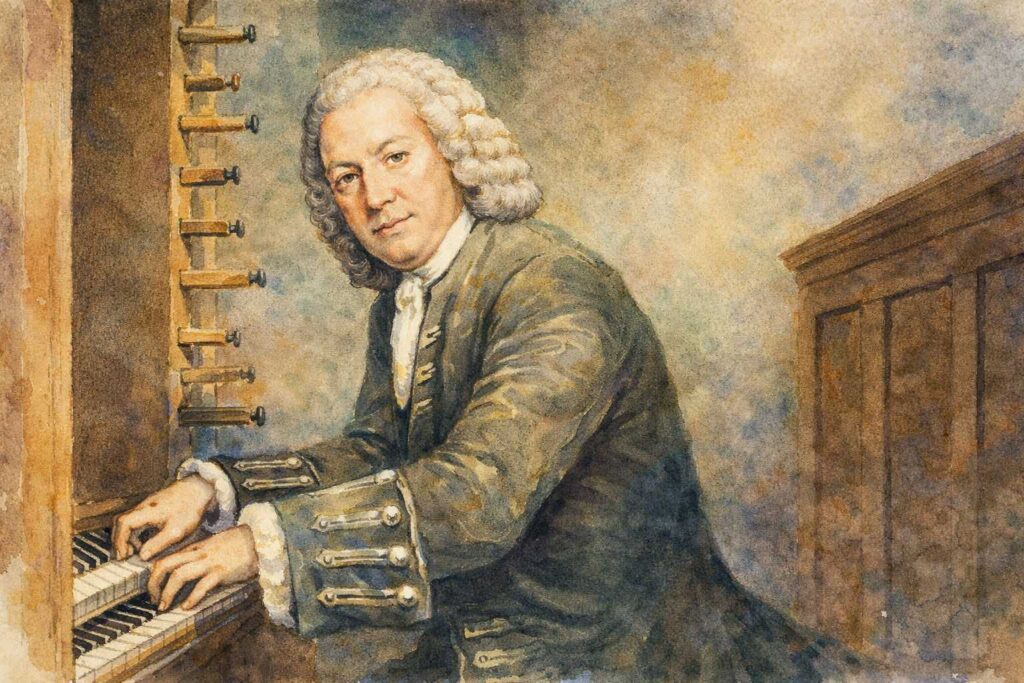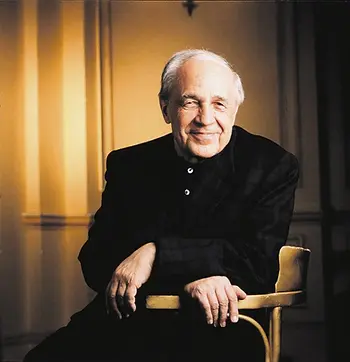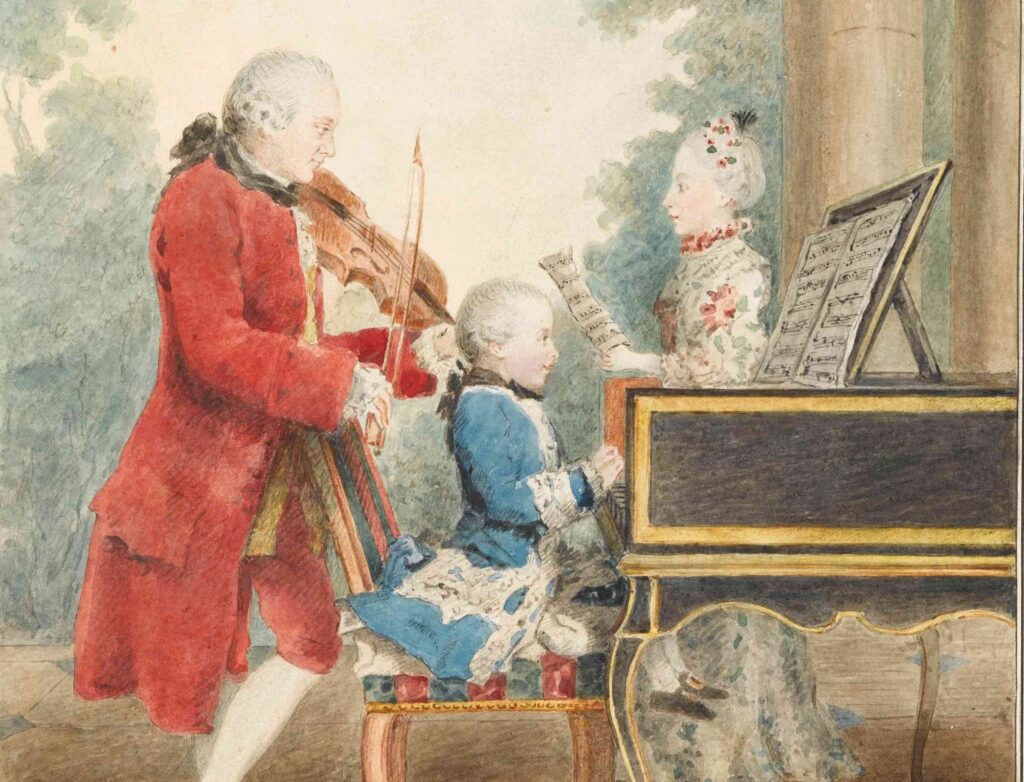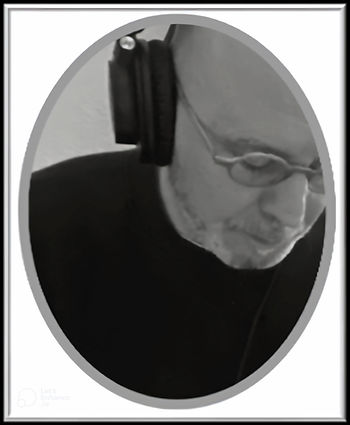Sergei Rachmaninoff was born on April 1, 1873, in Oneg, Russia, into an aristocratic family with deep musical roots. His father, Vasily Rachmaninoff, was an army officer, while his mother, Lyubov Butakova, was an amateur pianist. The family initially lived in luxury, but due to his father’s poor financial decisions, they lost much of their wealth and were forced to move to a smaller estate in Novgorod.
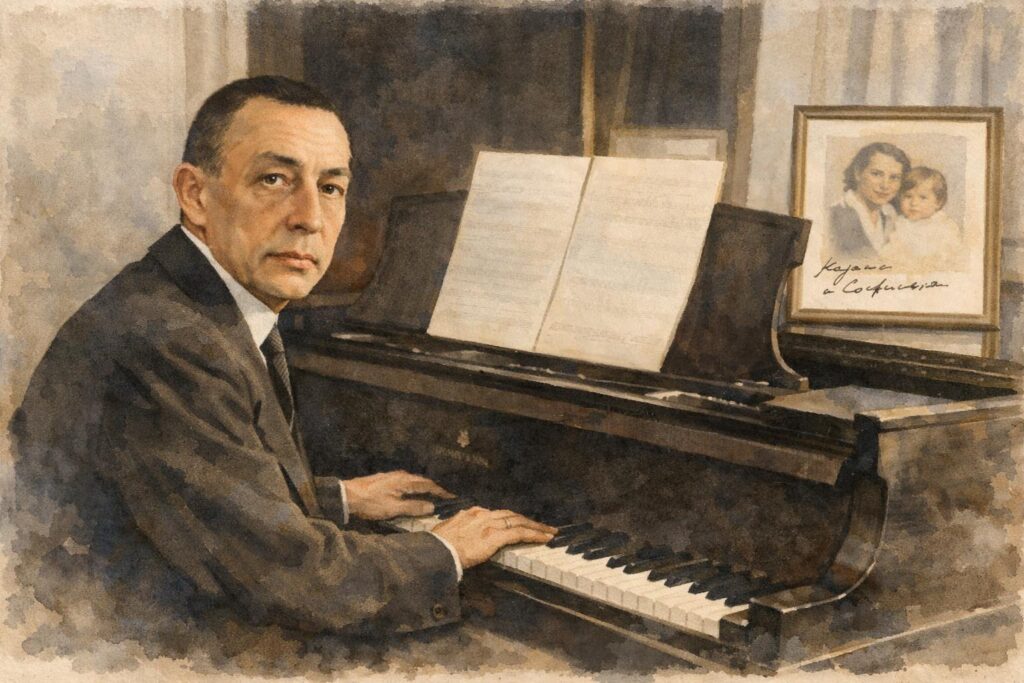
This economic downfall had a profound psychological impact on young Sergei. At the age of nine, his parents separated, and his mother took full responsibility for his education. Recognizing his exceptional talent, she arranged for him to study piano with Anna Ornatskaya, a former student of Theodor Leschetizky, one of the most influential piano teachers of the 19th century.
However, Rachmaninoff was not an easy child. His carefree attitude and lack of discipline in his studies led his family to send him to Moscow Conservatory, where he studied under Nikolai Zverev, a strict but highly respected piano teacher. Under Zverev’s rigid routine, Rachmaninoff flourished as a pianist, but his interest in composition grew stronger.
Musical Education and Early Struggles
At the Moscow Conservatory, Rachmaninoff studied piano with Alexander Siloti (a student of Liszt) and composition with Sergei Taneyev and Anton Arensky. He graduated in 1892 with a gold medal in composition, premiering his Piano Concerto No. 1 as part of his final exam.
His early career, however, was met with a significant setback. In 1897, the premiere of his Symphony No. 1 was a disaster—due in part to the poor conducting of Alexander Glazunov, who was rumored to be drunk. Critics tore the piece apart, with one famously writing that
“This symphony would be admired by the inhabitants of Hell.”
This failure shattered Rachmaninoff’s confidence, leading him into a deep depression and a three-year-long creative block.
A Turning Point: Hypnotherapy and the Path to Success
Rachmaninoff’s recovery came through an unexpected source—Dr. Nikolai Dahl, a neurologist and hypnotherapist. Through daily sessions of positive suggestion therapy, Dahl helped restore Rachmaninoff’s self-belief. The result? Piano Concerto No. 2 in C minor (1901)—one of the most beloved piano concertos of all time. The concerto’s sweeping melodies and deep emotional intensity made Rachmaninoff famous, securing his place as a leading composer of his generation.
Major Works and Events That Made Him Famous
Following his triumph with the Second Piano Concerto, Rachmaninoff’s career took off:
- 1902 – Married Natalya Satina, his first cousin (Marrying your cousin was not a weird thing under Russian Orthodox Church law at the time).
- 1904-1906 – Became the conductor of the Bolshoi Theatre in Moscow.
- 1909 – Composed and premiered Piano Concerto No. 3, one of the most technically demanding works in the piano repertoire.
However, political turmoil in Russia deeply affected Rachmaninoff. The Russian Revolution of 1917 forced him to flee the country, never to return. Settling in the United States, he had to reinvent himself primarily as a concert pianist, performing extensively to support his family. Eventually in the US, he was known as the Mr, Prelude in C# minor due to the enormous popularity of this piece. Needles to say he hated the nickname and the piece, but artists need to eat too, so he tolerated it.
Influences: Who Shaped Rachmaninoff’s Music?
Musical Figures Who Influenced Him
- Pyotr Ilyich Tchaikovsky – Perhaps Rachmaninoff’s greatest musical influence. The two composers shared a love for lush orchestration and deeply emotional melodies. Tchaikovsky also supported Rachmaninoff’s early career.
- Frédéric Chopin – His influence can be heard in Rachmaninoff’s piano works, especially in his Preludes and Études-Tableaux.
- Franz Liszt – Rachmaninoff inherited Liszt’s virtuosic piano style and rich harmonies.
- Nikolai Medtner – A fellow Russian composer and close friend, Medtner’s lyrical and complex piano compositions inspired Rachmaninoff’s own works.
Non-Musical Figures Who Influenced Him
- Dr. Nikolai Dahl – His hypnotherapy played a crucial role in Rachmaninoff overcoming his self-doubt.
- Leo Tolstoy – Though Rachmaninoff admired Tolstoy’s literature, he was once deeply hurt when the writer dismissed his music as “insincere.” Believe me, you don’t want Tolstoy to call your music insincere.
Why Is Rachmaninoff’s Music So Important?
Rachmaninoff’s music bridges the Romantic era and the 20th century. At a time when composers were embracing modernism (like Stravinsky and Schoenberg), Rachmaninoff remained true to melody, emotion, and rich harmonies.
His works are known for:
- Gorgeous, sweeping melodies – Many of his themes, like the famous 18th Variation from Rhapsody on a Theme of Paganini, are instantly recognizable.
- Virtuosic piano writing – His compositions demand both technical brilliance and deep emotional expression.
- Lush orchestration – He continued the Russian tradition of grand, expressive symphonic music.
Rachmaninoff’s Most Remarkable Works
If you want to experience the full range of Rachmaninoff’s genius, these are must-listens:
Piano Works
- Piano Concerto No. 2 (1901) – One of the greatest concertos ever written.
- Piano Concerto No. 3 (1909) – Known as the “Everest of piano concertos” for its technical difficulty.
- Rhapsody on a Theme of Paganini (1934) – A dazzling set of variations on Paganini’s famous theme.
Orchestral and Choral Works
- Symphony No. 2 (1907) – A symphony of deep emotional power.
- The Bells (1913) – A choral symphony inspired by Edgar Allan Poe’s poem.
- Vespers (All-Night Vigil) (1915) – A masterpiece of Russian Orthodox choral music.
Solo Piano Pieces
- Preludes, Op. 23 & Op. 32 – A set of beautiful and technically demanding piano pieces.
- Études-Tableaux, Op. 33 & Op. 39 – A collection of highly expressive piano etudes.
And also of course, Prelude in C-sharp minor, Op.3, No. 2
Who Did Rachmaninoff Influence?
Rachmaninoff’s music, with its lyricism and emotional depth, inspired many later composers, including:
- Vladimir Horowitz – The legendary pianist was one of Rachmaninoff’s greatest interpreters.
- Sergei Prokofiev – Though more modernist, Prokofiev admired Rachmaninoff’s pianistic style.
- Dmitri Shostakovich – Used Rachmaninoff’s rich orchestral textures in his own symphonies.
- John Williams – The famous film composer borrowed Rachmaninoff’s harmonies in his scores for Star Wars and Harry Potter.
- Arashk Azizi – Yeah, I know. I’m supposed to write only famous composers here, but I guess it would be a shame not to use the opportunity to mention myself, wouldn’t it?!
Final Thoughts
Despite his serious and melancholic music, Rachmaninoff had a passion for fast cars! He was one of the first musicians to own an automobile and loved driving at high speeds, much to the terror of his passengers.
Sergei Rachmaninoff was one of the last great Romantic composers, whose music continues to captivate audiences worldwide. His lush melodies, deep emotions, and unparalleled piano writing ensure that his legacy remains eternal.
#SergeiRachmaninoff #ClassicalMusic #RomanticMusic #RomanticEra #GreatComposers #MusicHistory #PianoConcerto #Piano #ClassicalPiano #Rachmaninoff #RachmaninoffPianoConcerto

